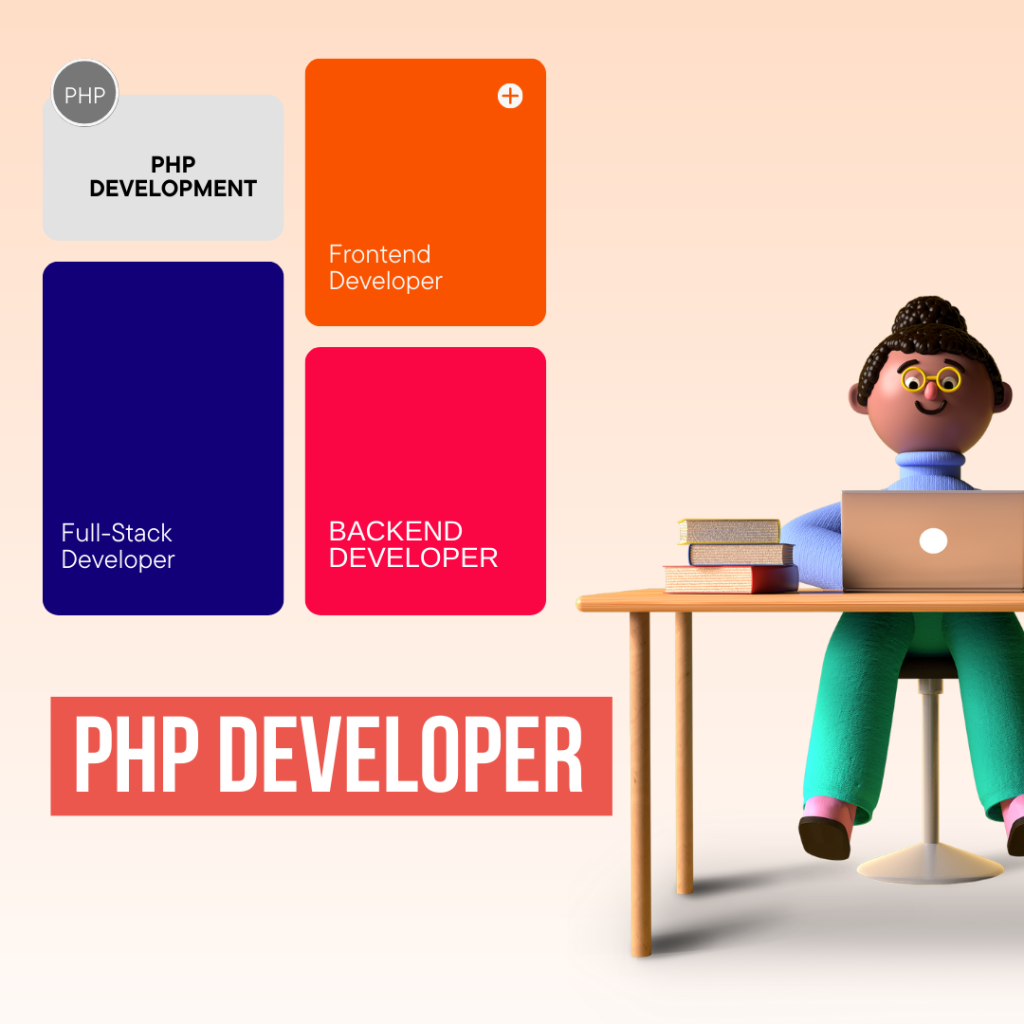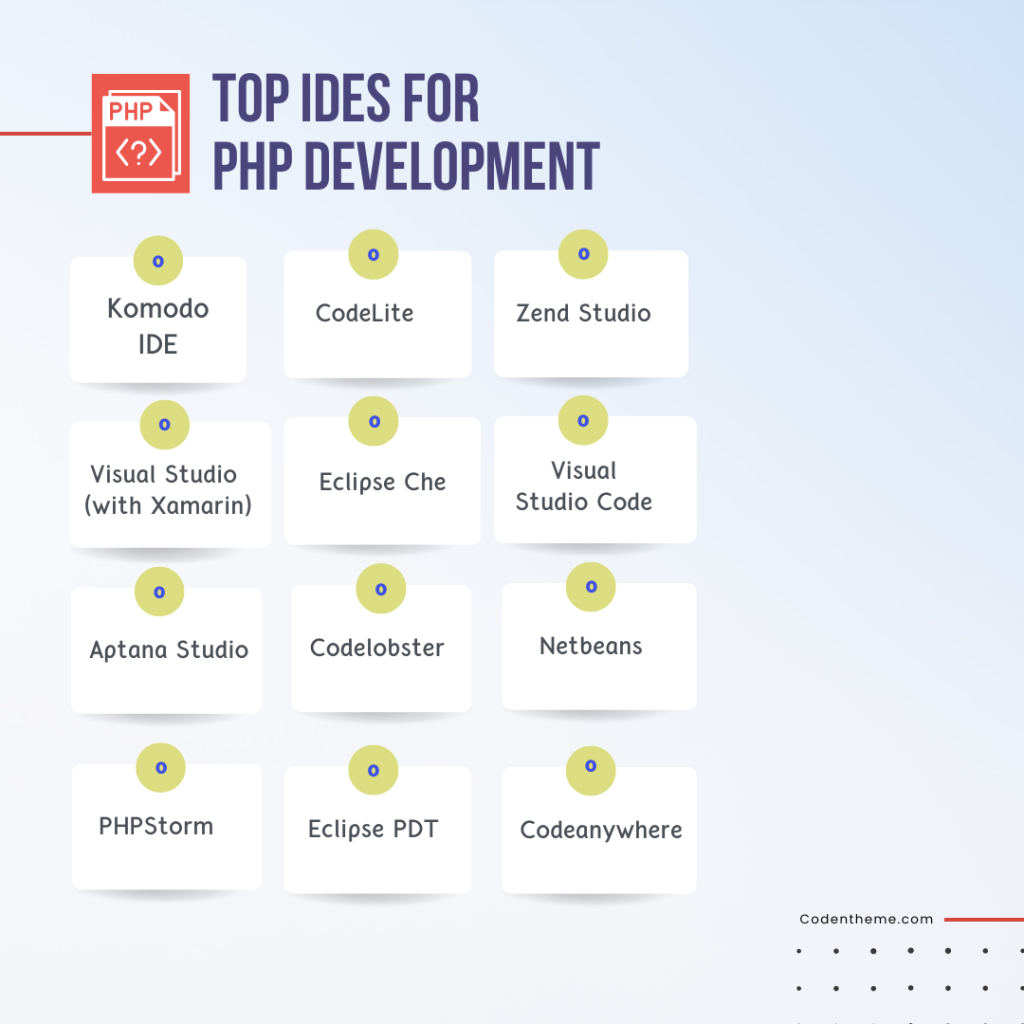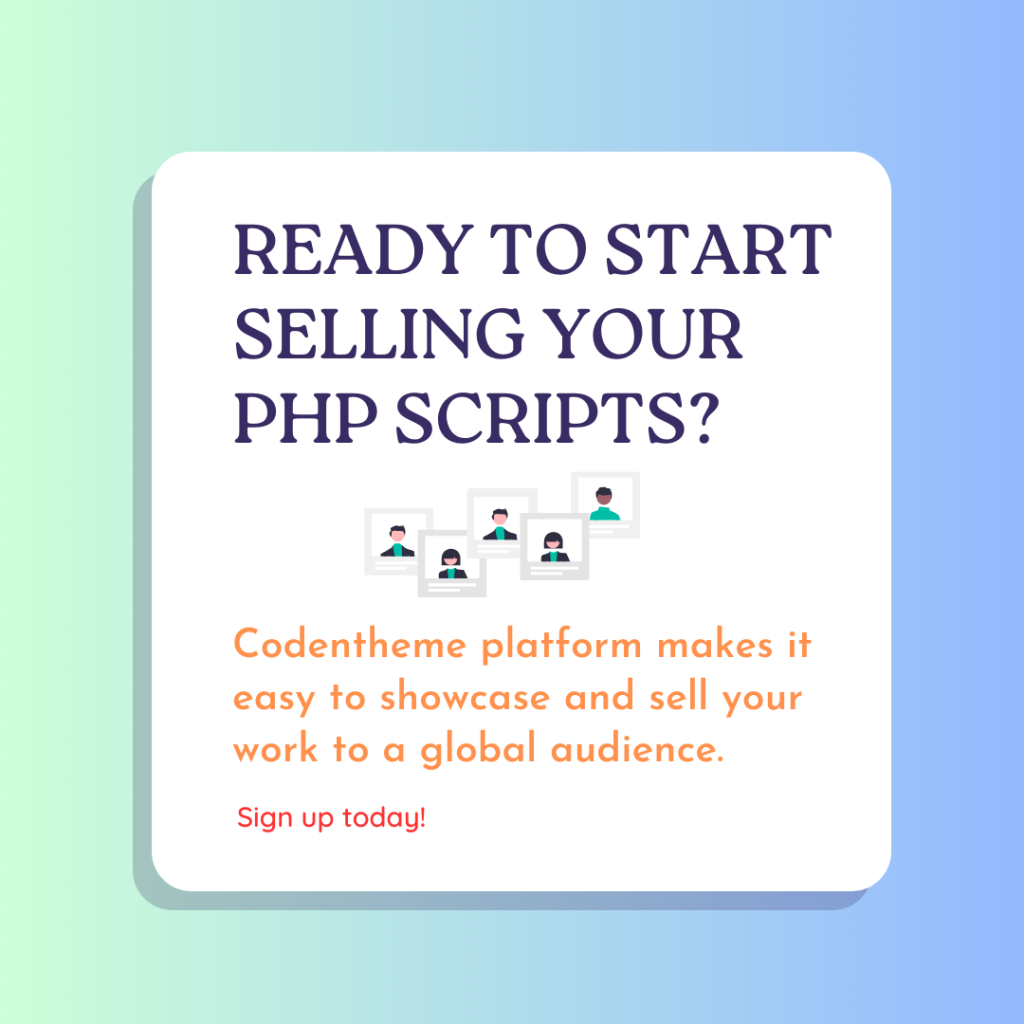The Complete Guide to PHP Development for Beginners
The web development industry has a wide range of programming languages, and PHP has solidified its position as a prominent server-side scripting language. With its long history, PHP has remained a focused and reliable choice for web development.
Despite the emergence of languages like JavaScript and Python, PHP continues to gain popularity year after year.
When you examine popular platforms such as Slack, Facebook, Tumblr, Mailchimp, Wikipedia, Etsy, and WordPress, you can observe that these websites are powered by PHP programming. It’s evident that PHP is widely utilized across various domains in web development.
In this article, you will learn about What is PHP? And the reasons why PHP is the preferred choice for web development. You will also learn about PHP’s advantages. In addition, you will be introduced to the top code editors and integrated development environments (IDEs) recommended for PHP development.
Why PHP Is The Best Programming Language?
PHP is widely regarded as a highly accessible language for web development for several reasons. It boasts easy and cost-effective setup, simplifying server-side application deployment.
Another advantage of PHP is its user-friendly nature, which makes it easier to find proficient talent than more niche programming languages.
Over the years, PHP has undergone consistent maintenance and updates to ensure its functionality and relevance.
As part of its competition with JavaScript, PHP has even adopted object-oriented programming.
Out of the box, PHP seamlessly integrates with commonly used database languages such as MySQL. It enables smooth web development regardless of data volume.
The PHP programming language was specifically designed for processing large amounts of data on the server side of a website, which makes it an appropriate choice for web development.
Being an older language, PHP benefits from a vast community of developers and extensive documentation to facilitate learning and usage.
There are guides and dedicated message boards that provide guidance and tools for leveraging PHP effectively.
What Are The Advantages Of PHP?
Open-source.
PHP is an open-source programming language, allowing developers to use it for free. Additionally, PHP frameworks are also freely available, making the process of building web applications faster and easier.
Platform independent.
PHP is compatible with all major operating systems, eliminating the need for special software to render web applications in different web browsers. Many web applications on the internet continue to rely on PHP as their backend technology.
Easy to learn.
PHP was designed to be user-friendly and easy to maintain. Developers familiar with other programming languages will find PHP slightly different but still relatively simple to grasp.
Database integration.
PHP seamlessly connects to databases, making backend development efficient and convenient. It is a crucial component of the widely popular LAMP stack (Linux, Apache, MySQL, PHP).
Performance.
PHP’s ability to handle databases efficiently makes it an optimal choice for developing high-performance web applications, particularly for users with slow internet connections. PHP loads websites quickly.
Maintenance.
PHP follows the Model-View-Controller (MVC) architecture, promoting clean and maintainable code.
Security.
PHP incorporates built-in features and tools to safeguard web applications from security threats, including SQL injection, data tampering, and forgery.
Stability.
PHP has a long history and is known for its stability compared to other modern programming languages.
Community.
PHP boasts a vibrant and active community across various platforms, including online forums like Stack Overflow. This active community ensures that answers to many questions are readily available, providing valuable resources for developers to implement in their code.
Who Is PHP Developer?
PHP developers specialize in coding, programming, and development using the PHP (Hypertext Preprocessor) programming language. Their primary responsibility involves building web applications, websites, and other software solutions using PHP as primary backend technology.
PHP developers should possess strong programming skills, a deep understanding of PHP syntax and functionality. They should also be familiar with web development concepts such as HTML, CSS, and JavaScript. Knowledge of database management systems and experience with frameworks like Laravel, CodeIgniter, or Symfony is also beneficial.
Effective communication, problem-solving abilities, and the capability to work collaboratively in a team environment are essential traits for a PHP developer. They should be adaptable to changing project requirements and deliver high-quality code within specified timelines
What Does A PHP Developer Do?
The role of a PHP developer typically includes:
- Developing and maintaining server-side applications using PHP.
- Writing clean, efficient, and scalable PHP code while following best practices and coding standards.
- Collaborating with frontend developers to integrate server-side functionality with the user interface.
- Integrating databases and data storage solutions with PHP applications.
- Implementing robust security measures to safeguard against common web vulnerabilities.
- Troubleshooting and debugging PHP code to identify and resolve issues.
- Optimizing PHP applications to ensure efficient data processing and fast loading times.
- Keep up with the latest PHP frameworks, libraries, and development tools.
- Utilizing version control systems to manage codebase changes and collaborate with team members.
- Conducting comprehensive testing and quality assurance to ensure PHP applications’ reliability and functionality.

What Does It Take To Be A PHP Developer?
Considering a career in PHP web development can be an exciting and rewarding choice. One common path in web development is becoming a PHP developer, which offers various opportunities and specializations within the field.
PHP offers a dynamic and diverse landscape for developers to work in. There are different paths you can pursue: backend development, frontend development, or full-stack development.
If you’re unfamiliar with these terms, don’t worry—we’ll explain each below.
Frontend Developer: Frontend developers focus on creating websites’ visual and interactive aspects.
They work with HTML, CSS, and JavaScript to design and develop user interfaces (UI) for websites, web applications, and other digital platforms.
Frontend developers ensure websites look professional, visually appealing, and provide smooth user experiences.
Backend Developer: Backend developers handle behind-the-scenes aspects of web development. They work with server-side technologies and programming languages such as PHP, Ruby, Node.js, Python, or Java.
Backend developers handle database management, security checks, and server-side processing. They create the logic and functionality that powers web applications, ensuring they run smoothly and efficiently.
Full-Stack Developer: Full-stack developers possess frontend and backend skills.
They are proficient in both client-side technologies (HTML, CSS, JavaScript) and server-side technologies (such as PHP, Ruby, or Python).
Full-stack developers have a broad understanding of web development and can handle both user interface and server-side processes. They can work on all aspects of a web application, from the frontend design to the backend implementation.
To excel in web development, it’s essential to continually learn and adapt to new technologies and frameworks.
There are ample resources available, including free themes, example codes, and PHP scripts, which can help you practice and enhance your skills.
By focusing on continuous learning and hands-on experience, you can build a successful web development career.
Developer’s Environment For PHP
If you’re just starting to program, you might wonder about the difference between IDEs (Integrated Development Environments) and code editors.
While both tools are used by programmers for coding, they have distinct characteristics. Here’s an explanation:
What Is a PHP Editor?
Code editors are lightweight software applications designed for writing and editing code. They offer syntax highlighting, code completion, and basic formatting. Code editors usually have a simple interface focused on editing code files. They are lightweight and fast, making them suitable for quick edits or small projects. Some popular code editors include Sublime Text, Atom, Visual Studio Code, and Notepad++.
Key features of code editors:
- Syntax highlighting: Highlights code elements with different colors to enhance readability.
- Code completion: Suggests code snippets, function names, and variable names while typing to improve productivity.
- Basic debugging: Some code editors support basic debugging features like setting breakpoints and inspecting variables.
- Extensibility: Code editors often support extensions or plugins to enhance functionality and language support.
What are Integrated Development Environments (IDEs)?
IDEs are comprehensive software suites that provide complete software development tools. They combine a code editor with additional features and tools to support various aspects of development. IDEs offer advanced features like code debugging, version control integration, project management, and more. They are feature-rich environments suitable for larger projects and collaborative development. Examples of popular IDEs include Eclipse, IntelliJ IDEA, NetBeans, and Visual Studio.
Key features of IDEs:
- Advanced debugging: IDEs provide powerful debugging capabilities, including breakpoints, step-by-step execution, variable inspection, and more.
- Integrated build tools: IDEs offer tools for compiling, building, and packaging applications directly within the development environment.
- Code refactoring: IDEs help restructuring code by providing automated tools for renaming variables, extracting methods, and improving code structure.
- Version control integration: IDEs seamlessly integrate with version control systems like Git, enabling efficient collaboration and source code management.
- Project management: IDEs provide features for managing projects, such as templates, project navigation, and code organization tools.
- Language-specific support: IDEs often support specific programming languages, providing specialized features for syntax, frameworks, and libraries.
Editor or IDE for PHP
Code editors are lightweight tools focused on code editing with essential features. IDEs (Integrated Development Environments) are comprehensive software suites that provide advanced features and tools for the entire software development lifecycle. The choice between a code editor and an IDE depends on factors such as project complexity, developer needs, and personal preferences.
If you are a beginner or working on simple PHP applications, a PHP editor is a suitable choice. PHP editors are lightweight, load faster, and have a simple user interface. They provide essential editing features like syntax highlighting, code completion, and basic code formatting, which are sufficient for most coding tasks.
Alternatively, if you are an experienced PHP programmer working on complex applications or have specific coding requirements, a PHP IDE may be more helpful. PHP IDEs offer advanced features such as advanced debugging, integrated build tools, code refactoring, version control integration, and project management. They support large-scale projects and provide a comprehensive development environment.
PHP IDEs are more feature-rich and provide a range of tools to enhance productivity and facilitate development. However, they may have a steeper learning curve and require more system resources than code editors.
Top Code Editors for PHP Development.

Sublime Text: Sublime Text is a lightweight and highly customizable code editor known for its extensive feature set and large ecosystem of plugins. It offers a sleek interface, multiple selections, and powerful editing capabilities.
Atom: Atom is a flexible and customizable text editor developed by GitHub. It boasts a vast package library, allowing developers to tailor their editing environment to their specific needs. It supports various languages, including PHP, and offers features like smart autocompletion and file system browsing.
Brackets: Brackets is an open-source code editor created by Adobe, specifically designed for web development. While it focuses on front-end technologies, it provides excellent support for PHP as well. It includes live preview, inline editing, and preprocessor support.
Notepad++: Notepad++ is a popular free source code editor for Windows. It offers syntax highlighting, code folding, and auto-completion for PHP, making it a user-friendly choice for PHP development. It supports various other programming languages.
Codelobster: Codelobster is a free IDE specifically built for PHP development. It comes with built-in support for popular PHP frameworks, code completion, and debugging tools. It simplifies PHP development tasks and enhances productivity.
Vim: Vim has been a highly configurable and powerful text editor for decades. While it has a steep learning curve, Vim offers efficient editing capabilities once mastered. It is highly customizable and supports PHP development through various plugins.
Bluefish: Bluefish is a lightweight yet feature-rich code editor targeted at web developers. It supports multiple programming languages, including PHP, and provides features like syntax highlighting, code snippets, and project management tools.
UltraEdit: UltraEdit is a feature-rich text editor that offers a wide range of tools for efficient PHP development. It provides syntax highlighting, code folding, FTP/SFTP support, and powerful search and replace functionality.
Rapid PHP Editor: Rapid PHP Editor is a full-featured PHP IDE with an advanced code editor and debugging tools. It offers support for various PHP frameworks and CMS platforms, making it a comprehensive PHP development solution.
RJ TextEd: RJ TextEd is a comprehensive text and source code editor that includes advanced features like code completion, syntax highlighting, and project management. It supports PHP and other programming languages and offers a user-friendly interface.
jEdit: jEdit is a cross-platform text editor with extensive plugin support. It is suitable for PHP development and offers features like syntax highlighting, code folding, and a built-in macro language.
Visual Studio Code: Visual Studio Code (VS Code) is a popular and versatile code editor developed by Microsoft. It provides excellent PHP language support through extensions, debugging capabilities, and an active community. It offers a rich set of features, including IntelliSense and Git integration.
SlickEdit: SlickEdit is a powerful code editor that offers a wide range of features for PHP development. It includes code navigation, debugging tools, and multi-platform support, making it suitable for complex PHP projects.
TextMate: TextMate is a lightweight and customizable text editor for macOS. It provides a simple and intuitive interface and supports various programming languages, including PHP. It offers snippets, macros, and customizable keyboard shortcuts.
Smultron: Smultron is a user-friendly text editor designed for macOS. It has a modern and intuitive interface and provides essential features for PHP development, such as syntax highlighting, code folding, and built-in terminal support.
Codeanywhere: Codeanywhere is a cloud-based development environment that allows developers to code in PHP using any web browser. It offers flexibility, collaboration options, and features like syntax highlighting, FTP support, and terminal access.
GNU Emacs: GNU Emacs is a highly extensible and customizable text editor widely used by experienced developers. It offers an extensive feature set and supports PHP development in various modes and extensions. It has a learning curve but provides immense power and flexibility.
Top IDEs for PHP Development.

PHPStorm: PHPStorm is a powerful and feature-rich IDE specifically designed for PHP development. It offers advanced coding assistance, debugging tools, and integration with popular PHP frameworks. It also supports other web technologies and provides smooth development.
Codelobster: Codelobster is a free IDE for PHP development that comes with a range of features including syntax highlighting, code completion, and debugging tools. It supports popular PHP frameworks and provides an intuitive interface for efficient coding.
Netbeans: Netbeans is a popular open-source IDE with strong PHP support. It provides code templates, debugging capabilities, and integration with version control systems. It also supports multiple programming languages and offers a modular architecture for extensibility.
Aptana Studio: Aptana Studio is a comprehensive IDE that supports PHP along with other web technologies like HTML, CSS, and JavaScript. It offers code highlighting, debugging, and deployment capabilities, making it suitable for web development projects.
Visual Studio Code: Visual Studio Code (VS Code) is a lightweight and versatile code editor that supports PHP development through extensions. It offers IntelliSense, debugging, and Git integration. It is highly customizable and has a vibrant community creating various PHP extensions.
Visual Studio (with Xamarin): Visual Studio is a powerful IDE developed by Microsoft, primarily for .NET development. With Xamarin, it also supports cross-platform mobile app development using PHP as a backend language. It provides a robust development environment with advanced features and debugging tools.
Eclipse PDT: Eclipse PDT (PHP Development Tools) is an Eclipse-based IDE specifically tailored for PHP development. It offers syntax highlighting, code assistance, and debugging tools. It supports PHP frameworks and integrates with version control systems.
Eclipse Che (cloud IDE): Eclipse Che is a cloud-based IDE that allows collaborative PHP development. It provides a containerized development environment accessible through a web browser, enabling teams to work together on PHP projects. It offers code editing, debugging, and project management.
CodeLite: CodeLite is a lightweight and cross-platform IDE that supports PHP development. It provides code completion, refactoring, and debugging tools. It also supports other programming languages and offers an intuitive interface.
Zend Studio: Zend Studio is an IDE specifically designed for PHP development by the PHP creators. It offers a comprehensive set of features for efficient PHP coding, including debugging, profiling, and integration with the Zend Framework. Zend Framework is now known as Laminas. It also supports other web technologies.
Codeanywhere(cloud IDE): Codeanywhere is a cloud-based IDE that allows you to code in PHP using any web browser. It provides a flexible and collaborative development environment with features like syntax highlighting, FTP support, and terminal access. It supports multiple programming languages and integrates with popular cloud storage services.
Komodo IDE: Komodo IDE is a powerful IDE that supports multiple programming languages, including PHP. It offers code intelligence, debugging tools, and version control integration. It provides a customizable and user-friendly interface for efficient PHP development.
Summary.
PHP is widely recognized as one of the best programming languages for web development due to its numerous advantages and strong presence in the industry.
The advantages of PHP, including its easy learning curve, extensive documentation, large community support, platform independence, and compatibility with various web servers and databases, make it an ideal choice for building dynamic and interactive web applications.
PHP developers play a crucial role in the development process, leveraging their expertise in PHP programming, web development principles, and related technologies. They are responsible for designing, developing, and maintaining web applications, ensuring clean and efficient code, and collaborating effectively with team members.
When it comes to the development environment, PHP developers have a variety of options. PHP code editors, such as Sublime Text, Atom, Visual Studio Code, and Notepad++, provide lightweight and customizable PHP coding environments. PHP-specific integrated development environments (IDEs), such as PHPStorm, Zend Studio, and NetBeans, offer advanced features like code analysis, integrated debugging, profiling tools, and comprehensive support for frameworks and libraries.
The choice between a code editor and an IDE ultimately depends on the project’s complexity, personal preferences, and the need for additional development features. Whatever tool you choose, PHP empowers developers to create high-quality web applications efficiently.

